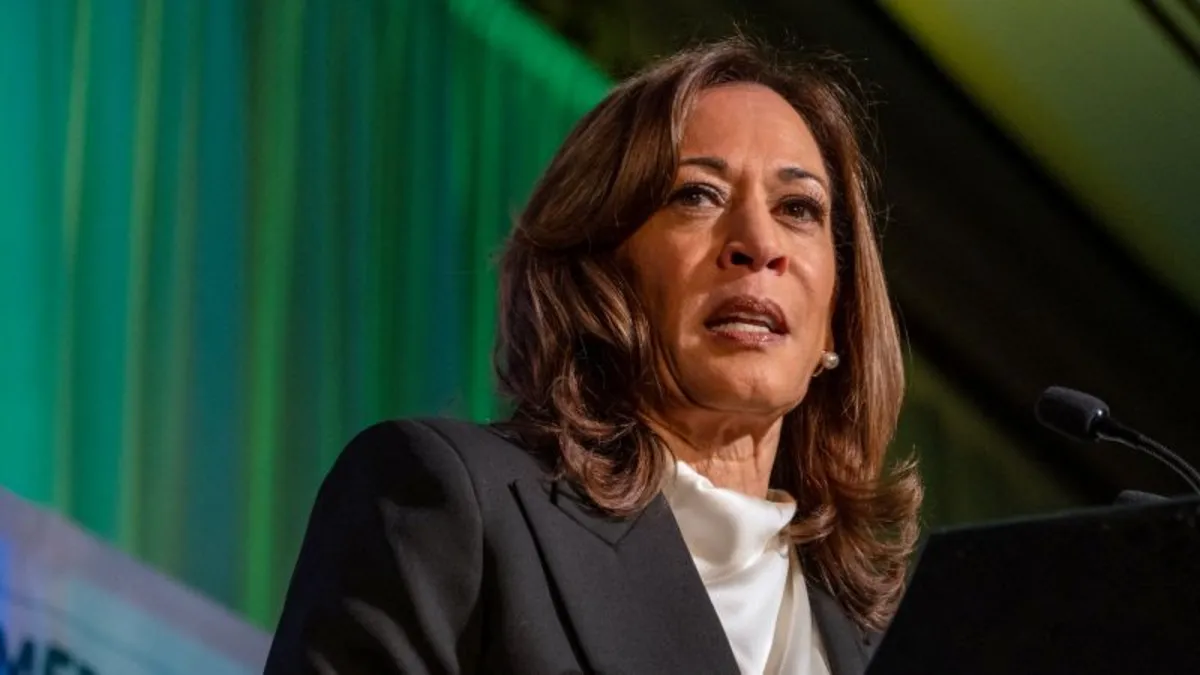
In a striking revelation, Kamala Harris has candidly assessed her time in the political arena, particularly her brief 2024 presidential campaign, in her forthcoming memoir, titled 107 Days. In an excerpt published by The Atlantic, Harris reflects on her relationship with Joe Biden and his wife, Jill Biden, and articulates her belief that their decision-making regarding his potential re-election bid was “recklessness.” This marks a notable departure from the loyalty she expressed during their tenure in office together.
Harris recalls a mantra that echoed among Biden's team: “It’s Joe and Jill’s decision.” She describes this sentiment as if they had been “hypnotized,” emphasizing that the stakes were too high for such an important choice to be left to personal ambitions. According to Harris, this decision should have transcended individual egos and been approached with greater collective responsibility.
Harris criticizes the Biden team for their lack of support during her campaign, asserting that their actions ultimately had detrimental effects on both Biden and the nation. She notes that as her popularity began to rise in polls, those around Biden were uncomfortable with the emerging contrast. “None of them grasped that if I did well, he did well,” she writes, stressing that her success was crucial not only for her candidacy but also for Biden’s image and confidence in his leadership.
Harris reflects on her deep loyalty, which she admits sometimes bordered on timidity, particularly regarding critiques of Biden’s record. This loyalty became a significant hurdle during her campaign, especially highlighted by an appearance on The View last October. When asked what she might have done differently from Biden, she struggled to articulate a response, stating, “There is not a thing that comes to mind.” This moment haunted her as she navigated the final weeks of her campaign against Donald Trump.
In her memoir, Harris also confronts the sensitive issue of Biden’s age and its impact on his public performance. While she acknowledges that Biden, at 81, experiences fatigue, she defends his capabilities. “On his worst day, he was more deeply knowledgeable, more capable of exercising judgment, and far more compassionate than Donald Trump on his best,” she asserts. Harris contextualizes Biden's occasional stumbles as a result of exhaustion rather than incapacity, emphasizing her unwavering loyalty to both him and the nation.
Despite speculation that Harris might run for governor of California, she announced over the summer that she would not pursue that path. However, she has not closed the door on a future presidential run, even as close associates suggest that her time in office may be nearing an end. Her memoir, set to release in two weeks, offers a new chapter in the complex relationship between Harris and Biden, dating back to their early friendship and evolving through the political landscape.
In her memoir, Harris speaks candidly about feeling undermined by Biden and his staff. She claims they neither defended her nor promoted her achievements, even as negative narratives circulated about her role, particularly regarding her position on migration issues. Harris highlights a specific instance where her assignment to address migration from Central America was mischaracterized by Republicans as being the “border czar,” without support from the White House communications team to clarify her actual responsibilities.
As Harris navigates the complexities of her political journey in her memoir, she underscores the importance of strong support systems in leadership and the consequences of loyalty in high-stakes political environments. A spokesperson for Biden has yet to comment on the insight shared in Harris's memoir, which promises to provide a revealing look into the inner workings of their administration.